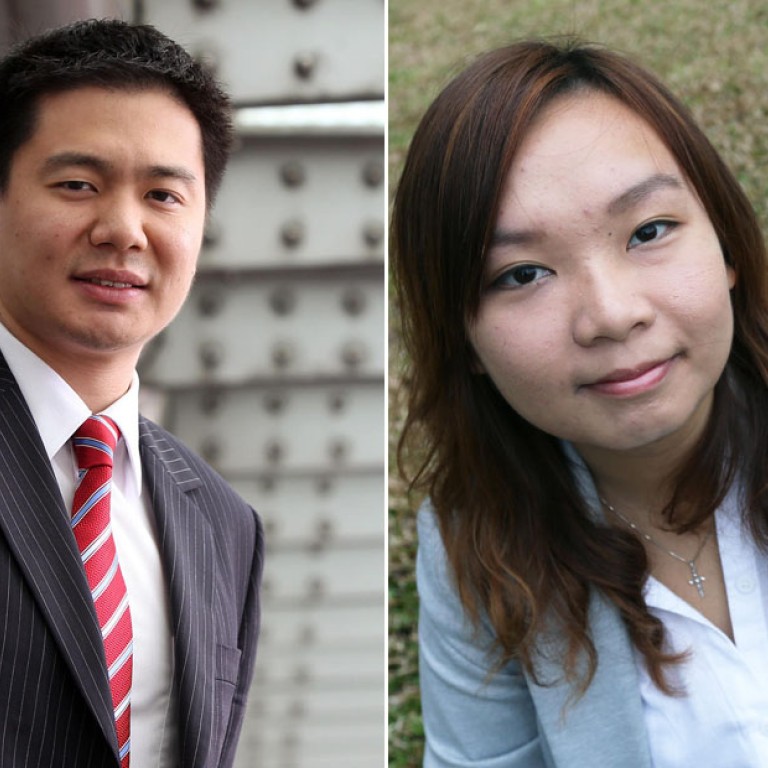
Hong Kong's political parties to court the young
The pro-government Democratic Alliance for the Betterment and Progress of Hong Kong said in December it was aiming to increase the number of its members aged between 18 and 40 by about 20 per cent, from 1,400 to 1,700. The Civic Party, one of the biggest pan-democratic parties in the Legislative Council, with six seats, has similar aspirations to add to its 300 members under 40.
Political parties recruiting new members are increasingly targeting young people due to their greater participation in social movements, scholars say.
The pro-government Democratic Alliance for the Betterment and Progress of Hong Kong said in December it was aiming to increase the number of its members aged between 18 and 40 by about 20 per cent, from 1,400 to 1,700. The Civic Party, one of the biggest pan-democratic parties in the Legislative Council, with six seats, has similar aspirations to add to its 300 members under 40.
Chinese University political scientist Ma Ngok said while it was "natural and inevitable" for political groups to recruit new blood, parties such as the DAB might be under more pressure to do so than pan-democratic ones.
"The pro-Beijing camp might make it their mission to reach out to the young, especially after the protest against national education [served as] a warning about their lack of support among young people," Ma said.

A series of protests in 2012 involving students, teachers and parents forced the government to shelve plans to introduce national education as a compulsory subject in schools. The campaign encouraged the emergence of student-led group Scholarism, which has been active in the debate on political reform.
Holden Chow Ho-ting, chairman of the DAB's youth branch, Young DAB, admitted it was difficult for the party to attract students, so it would focus on attracting young professionals.
"The more radical young people don't represent all of their peers," Chow said. "Some who disagree with them may be less outspoken, so why don't we try to win their support?"
The DAB plans to lengthen the internship programmes it organises for youngsters interested in a career in politics, and it is also planning to stage gatherings for soccer fans during the World Cup to attract supporters, Chow said.
When asked whether the DAB was under pressure from the central or Hong Kong government to make a greater push for support among the young, Chow said: "We would be doing just the same even without expectations from others … As a party, you always have to consider young people's needs."
On the opposite side of the political spectrum, the Young Civics, a branch of the Civic Party, has similar plans.
Bonnie Leung Wing-man, chairwoman of the Young Civics, said her party's internship could be lengthened so that university students could help with policy research before they went to work in lawmakers' district offices in the summer.
"Political reform will be [the city's] focus this year, while Occupy Central may also take place, so we hope to gather more supporters," Leung said. "We also hope that this will be a civic education [process] for promoting ideas of democracy and the rule of law."
The Civic Party will hold a debating competition for university students for the second year in a row this year, "to encourage young people to discuss public affairs rationally", Leung said.
Leung said there was no set target for how many youth members the party hoped to recruit.

